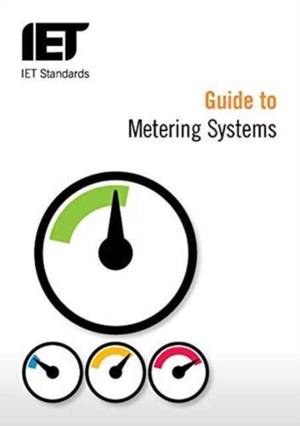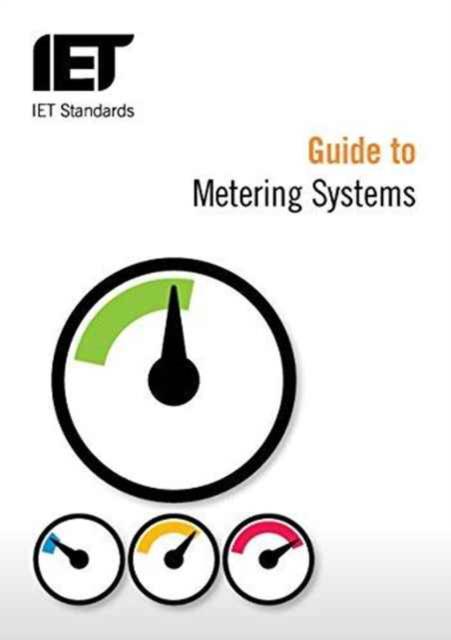
- Afhalen na 1 uur in een winkel met voorraad
- Gratis thuislevering in België vanaf € 30
- Ruim aanbod met 7 miljoen producten
- Afhalen na 1 uur in een winkel met voorraad
- Gratis thuislevering in België vanaf € 30
- Ruim aanbod met 7 miljoen producten
Guide to Metering Systems
Specification, Installation and Use
Vic Tuffen, Iet Standards Metering Systems Working GroupOmschrijving
Metering systems are a key technology for the management of energy and environment services, and for cost allocation and resource efficiency of systems and subsystems in industrial and commercial applications. Good practice in the application of metering is fundamental to successful regulatory compliance, operational & resource efficiency and cost saving. This entails appropriate design, specification, installation and integration of metering systems as well as suitable management oversight and responsibility.
Metering provides the technical underpinning for the measurement of energy and utility services, and provides a key information source for organisations looking to apply cost saving, performance improvement and/or energy management activities at a plant, building or site level. Appropriate use of metering can therefore support asset owners/system operators as part of an overall asset management system.
However, common issues can adversely affect the application of metering systems, including:
- awareness of the purpose of metering (what needs to be manage?)
- understanding the meaning of meter data/meter readings (what needs to be measured?)
- ensuring fit-for-purpose meter system implementation (how to specify, install and use as appropriate?)
These issues could in turn prejudice the justification and success of follow-up cost saving, performance improvement or energy management activities.
The guide details the key steps in applying metering systems from design and specification, to technology selection, installation and commissioning, and finally operation and maintenance along with integration of metering data into reporting/management systems, to support identification of cost saving, energy management and resource efficiency measures.
Checklists for metering of key services (such as electricity, gas, water, heat) are also provided to support organisational policies, practices and procedures.
Key benefits of the guide:
- Outlines the role of metering within energy and environment management systems and resource efficiency strategies
- Highlights key process stages in the application of fit-for-purpose metering within the context of overall management systems
- Provides insight into end use of meter data and key technical steps to enable safe and effective metering systems
Specificaties
Betrokkenen
- Auteur(s):
- Uitgeverij:
Inhoud
- Aantal bladzijden:
- 96
- Taal:
- Engels
- Reeks:
Eigenschappen
- Productcode (EAN):
- 9781785610592
- Verschijningsdatum:
- 25/11/2016
- Uitvoering:
- Paperback
- Formaat:
- Trade paperback (VS)
- Afmetingen:
- 208 mm x 295 mm
- Gewicht:
- 317 g

Alleen bij Standaard Boekhandel
Beoordelingen
We publiceren alleen reviews die voldoen aan de voorwaarden voor reviews. Bekijk onze voorwaarden voor reviews.











